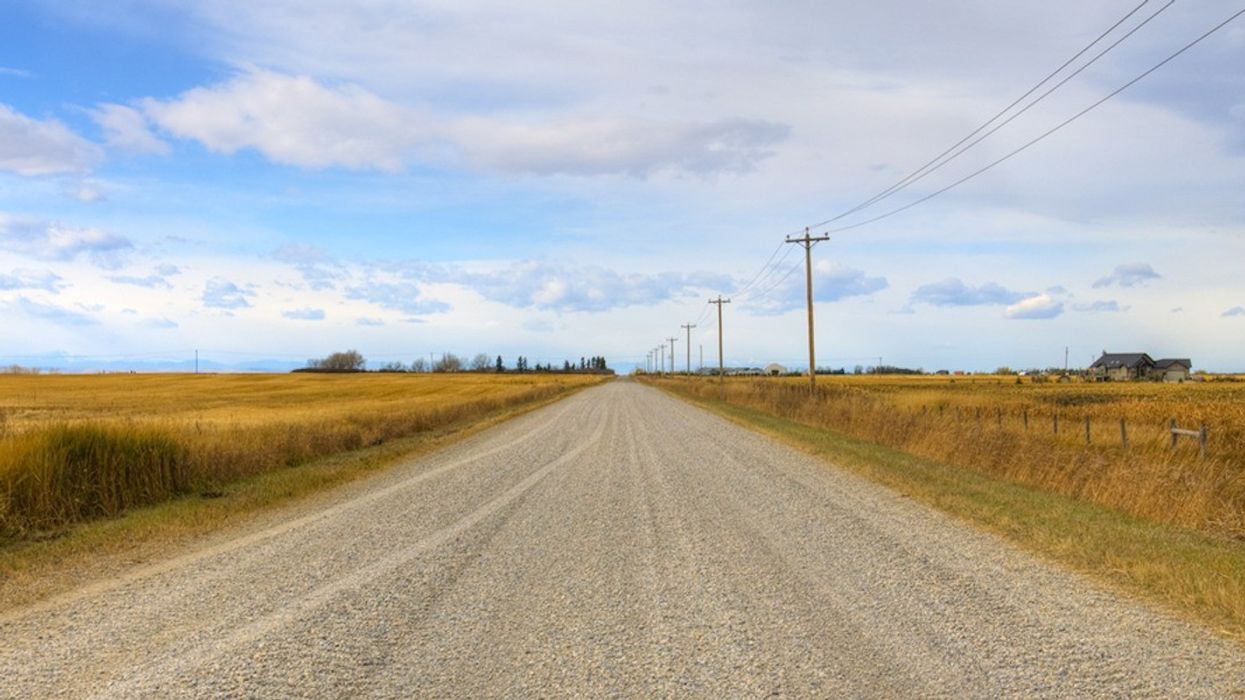When considering COVID-19's impacts, many have already hypothesized about what's to come in the year ahead; the condo market is confirmed to have returned, the rental market is expected to bounce back, and commercial real estate will be the same, but different.
But what about the pandemic's long-term affects? Well, according to new research from Ryerson University, the more-distant future may well be filled with greener pastures. Literally.
A new report from the Brookfield Institute for Innovation + Entrepreneurship predicts 2030 could see a "rural boom;" the result of a pandemic-induced influx of "Canadians leaving big cities for greener spaces."
Yesterday's Gone: Exploring Possible Futures of Canada's Labour Market in a Post-COVID World is a detailed report that does just what its title implies. Alongside predictions about technology, climate, capitalism, reconciliation, well-being, and more, the deep-dive forecasts a potential rush toward the country's more rural regions, as Canadians seek larger homes and connection with nature amid skyrocketing urban housing costs and increasing opportunities for remote work.
Today, about 18% of the country's population lives in rural areas; the percentage has "been on a steady decline," since the '60s. But, the report says, with consideration of the reasons listed above, "Canada’s rural areas may experience unprecedented population growth in the coming years."
READ: For Many Employees a Home Office is As Much About ‘How’ as ‘Where’
Nine years from now, the report says, a greater demographic diversity may be found in Canada's rural communities. Digital public services and supportive broadband infrastructure could see expansive growth, and "thriving main streets" have the potential to return. What's more, while soaring home prices in urban environments play a role in the current move toward more greenery, rural housing prices could actually see an increase in 2030, while cities become more affordable.
The report doesn't only focus on real estate demographics, but other issues as well, including climate, the labour market, and tourism. But these subjects aren't mutually exclusive, and changes in one area may, in many cases, lead to changes in another.
For example, the report proposes the impacts of a "green energy revolution" as being potentially meaningful for population demographics.
By 2030, Canada's green energy sector is expected to see an investment increase by 46%. Meanwhile, private and public sector support for electric vehicles has surged in recent times, suggesting "significant development in carbon-free transportation over the coming decade." If these hints point to an influx of green energy-related employment opportunities, individuals would have yet another reason to relocate to regions suited to wind and solar energy generation; read: rural communities and coastal areas.
Where the labour market is concerned, the potential for remote work to be not just a "new" normal, but a long-standing one, means there could be an increase in cross-border hiring (and related changes to employment eligibility laws). If this turns out to be the case, 2020's "we can work from anywhere" undercurrent may prevail, allowing employees greater choice for their home base.
"Rural governments may explore new forms of taxation for home offices to cover service costs associated with population growth," the report suggests. Meanwhile, Intra-Canada nature tourism could see an influx in activity as well, which may signify an economic boost for towns located near provincial and national parks.
And, according to the data, Canadians are ever-more keen on spending their time off the clock, which could mean more available time for exploring the country's natural wonders.
Brookfield Institute reports that an Angus Reid survey found "53% of Canadians said a four-day work week would be a good idea." What's more, another referenced report said nine out of 10 people "are willing to earn less money to do more meaningful work." From these findings, the report deduces individuals' priorities are being re-evaluated amid the pandemic, with a greater focus landing on family, friends, and hobbies.
"Many people are also questioning their values and long-held assumptions, and may rethink their career paths. The value placed on professional aspirations and our relationship to work is shifting, and individuals may be happier with less hours of work, less income, and new work norms," the document reads. "This trend may reinforce a rural boom, with migration patterns driven by life preferences rather than location of work."
For months now, it's been reported that millennials have been trading the city for the suburbs in order to get their hands on ground-level homes. The pandemic may have granted moves such as this a permission of sorts; it's hard to have FOMO for a city that's sleeping.
But, before any rash decisions are made, anyone considering relocation should remember: yes, the city is sleeping, but it isn't dead. When the hustle and bustle of urban life returns, so too will that old familiar Fear Of Missing Out.
Gnarly and gnawing, it's a brutal feeling... one that's only surpassed by a sense of homebuyers' regret.





















